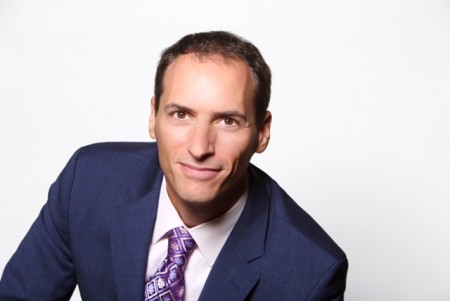What makes a legal tech company exciting to a venture capitalist?

Ari Kaplan.
Ari Kaplan spoke with Steven Sinofsky, a board partner at the venture capital firm Andreessen Horowitz, where he serves as an adviser for various companies, including as a board member of the e-discovery software provider Everlaw.
This Q&A has been condensed.
Ari Kaplan: Tell us about your role at Andreessen Horowitz.
Steven Sinofsky: We are multistage investor in technology companies, and our mantra is “software eats the world,” so we are very focused on helping software change the world and change business. I am the firm’s board partner, which means that I serve on the board of directors for and work with its portfolio companies helping to scale their businesses.
Ari Kaplan: Why is law-related software so attractive right now?
Steven Sinofsky: What’s super-interesting about the legal field is that it is very technology-centric in what it needs, and the problems are very complicated. In fact, the whole business of software is being reinvented right now by cloud computing. Years ago, if you were to start a law firm, you worked with a local provider to install a server in your firm. It was not just for the billing and infrastructure, but also for the process of litigation. Today, there are many alternatives that require no server, which means they’re much cheaper, easier to use, available right away, and are relatively maintenance-free. This reinvention of the technology infrastructure for running a law firm is very interesting and reminds me a lot of the early days of word processing.
Ari Kaplan: Is calculating the valuation of an e-discovery company different from doing so in other sectors given the unique nature of the work?
Steven Sinofsky: I’d love to say that lawyers are super-special and their software is super-special when it comes to the financial metrics, but when you think about a company’s potential, you’re really looking at how many customers they have, whether the customers like the product that they are buying, what they can they pay. The big difference is that there’s not a single dominant provider of software to the legal profession, and most law firms acquire and manage their software by working with local partners with representatives that live or work near their law firms.
Ari Kaplan: How long does it take your team to evaluate a company for an investment?
Steven Sinofsky: Venture investing is a highly specialized field like the law, with a much smaller number of people who practice it. In general, it depends on how young the company is. At the seed stage, there’s only so much you can look at if they don’t have customers yet. So, we focus on evaluating the founders and what they bring to it. As the company matures and seeks further funding at the investment stage, we look at sales, talk to customers, speak to salespeople, and talk to the partners with whom they work. Regardless, this is a very fast-moving industry, and you generally don’t have the luxury of spending months evaluating something because the payback is not as high on the amount of data you can acquire.
Ari Kaplan: How does a board member influence the strategy of a portfolio company?
Steven Sinofsky: We join the board of a company to support the founders, not to influence them or to direct strategy. The main thrust of the investments at Andreessen Horowitz is very focused on founders with a strong idea for the future, which is clearly what we saw in AJ Shankar, the CEO and founder of Everlaw.
Ari Kaplan: What would you recommend to a legal technology company or an e-discovery software provider that is interested in attracting a venture investment?
Steven Sinofsky: The kind of investments that are the most exciting for me personally are those where the founder has two important qualities. First, he or she has a very strong and relevant technical background. Second, he or she has a reason for being attracted to the problem the company is trying to solve. Everlaw was super-interesting because AJ was a hard-core computer scientist, who started a company focused on the problem that he saw as an expert witness.
Listen to the complete interview at Reinventing Professionals.
Ari Kaplan regularly interviews leaders in the legal industry and in the broader professional services community to share perspective, highlight transformative change and introduce new technology.



